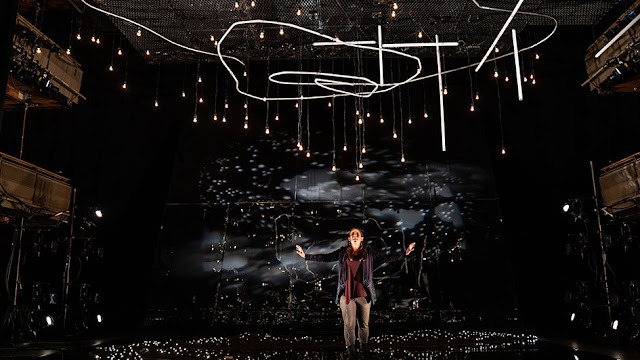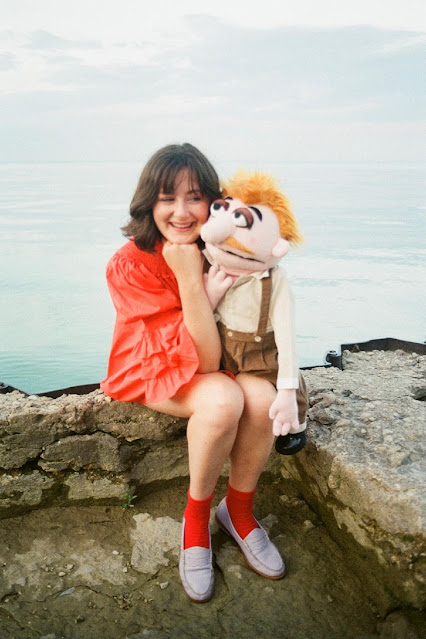Atlanta's Alexandra Jackson Pays Homage To Brazil's Musical Culture
Even as a young girl, Alexandra
Jackson knew she had big shoes to fill.
Her father was Atlanta’s first African-American mayor, the late Maynard
Holbrook Jackson, Jr. Jackson’s mother
is businesswoman and NPR personality Valerie Richardson Jackson. Opera also played a role in her family, given
that Jackson’s great aunt was Mattiwilda Dobbs, the Africa-American coloratura
soprano, who was one of the first black singers to enjoy a major international
career in opera. But Jackson, besides
being one of the nicest people I have ever interviewed, has demonstrated she is
more than capable of filling those shoes.
Jackson learned piano as a
child and studied classical music, but it was the music she was surrounded by
at home that truly influenced her. “My
father would play the Blind Boys of Alabama then move on to Take 6,” she
says. “My mother loved Johnny Hartman
and Phoebe Snow. I was into Earth Wind
and Fire, Michael Jackson, and Maxwell.
My older sister had a strong connection to Latin culture, so I also
heard a lot of Celia Cruz, Mark Anthony, and Gloria Estefan.”
After experimenting with
choral and musical theater, Jackson dove into jazz, attending the University of
Miami’s Studio Music and Jazz Vocal program.
“There was a lot of energy and the influence of a lot of different
cultures. That’s what Miami is all
about,” she says. “I was in jazz
ensembles. One was a Brazilian ensemble
and another was a salsa ensemble, so I came to appreciate these amazing forms
of music that were new to me. Latin and Brazilian songs are among my favorites
to sing to this day.”
After school, Jackson
continued to develop her craft. After a
brief stint in Los Angeles, she returned to Atlanta to pursue her jazz singing
career. A critical turning point came at
the 2013 Atlanta Jazz Festival when Jackson opened for jazz/pop/rap
singer-songwriter and bassist Meshell Ndegeocello. During her set, she sang the milestone bossa
nova tune, “The Girl From Ipanema” in Portuguese. “I looked out in the audience and saw Robert
Herbert.” The music industry veteran and
IT entrepreneur had known Jackson since she was a child. “I was so nervous because I couldn’t tell if
he was enjoying it or not. So I looked
elsewhere in the audience for the rest of the song.”
Despite his poker face
during her performance, Herbert was impressed at what he heard. He talked with Jackson afterward and said he
loved her songs that brought together Brazilian music, American jazz and soul,
and London jazz soul. He then asked
about her career plans. Unbeknownst to
Jackson, Herbert was working a special project that until that concert, he
never thought of an American singer for it.
Nearly 16 months later, when Herbert was confident that Jackson’s
natural interests and abilities dovetailed with his vison for this project, he
asked her to be part of “Legacy and Alchemy”.
“Alexandra Jackson: Legacy
and Alchemy” was a four-year high concept project, featuring a wide range of
Brazilian and American performers. The
project pays homage to Brazilian music, which celebrated significant
anniversaries in the last few years: 2016 marked the 50-year high point of
bossa nova and 2017 was the 100th anniversary of samba.
Herbert felt that
Jackson’s intensive vocal training and wide-ranging musical interests gave her
the sensitivity, sensuality, and strength to capture the essence of these
songs. “I’ve worked with so many top
singers, and I don’t think anyone else I’ve worked with could have or would
have even tried to do this,” explains Herbert.
“Alexandra could and did. The
biggest thing is she made it convincing for Brazilians.”
When Jackson began working
on “Legacy and Alchemy”, she contacted a Portuguese vocal coach for help in her
pronunciation. “I didn’t know Portuguese
well,” she explains. “So I had to learn quickly because I wanted to give honor
to the music I was going to be singing, such as knowing what the words meant in
English and understanding the stories. I
didn’t want to be disconnected from the Brazilian people and culture. The Brazilian culture is a very warm one,
especially if you make the effort to try and learn.” Some of Jackson’s most satisfying moments
occurred after performing in Brazil and people told her how she not only
captured the Portuguese language but the feeling of the music as well. They told her they were very surprised that
an American musician worked so hard to help preserve their music when so many
of their own would not.
The “Alexandra Jackson:
Legacy and Alchemy” project was an impressive undertaking that took nearly four
years to complete. Produced in Rio de
Janeiro, Los Angeles, London, New York, Chicago, and Atlanta, the songs are
sung in English, Spanish, and Portuguese.
It involved some 150 people, among them a dream team of musicians and
engineers in five cities and three continents.
Jackson recognizes the project took her on a journey. “With all the different collaborators, the
project took on a life of its own….Sometimes, I was frustrated the project was
taking so long to complete, but I realized it made sense.”
With her debut album, Jackson
breathes new life into these dynamic songs.
Throughout this project, she indeed pays homage to both American and
Brazilian music legacy and its legends. “There’s
a huge melting pot of music in our world today,” says Jackson. “This album
offers the opportunity for people to step outside the box. It’s not just jazz, not the blues, not soul,
not bossa nova, not samba, but it’s a mix of them all.” Jackson brings the magic of an alchemist for
a whole new generation to enjoy.





Comments
Post a Comment